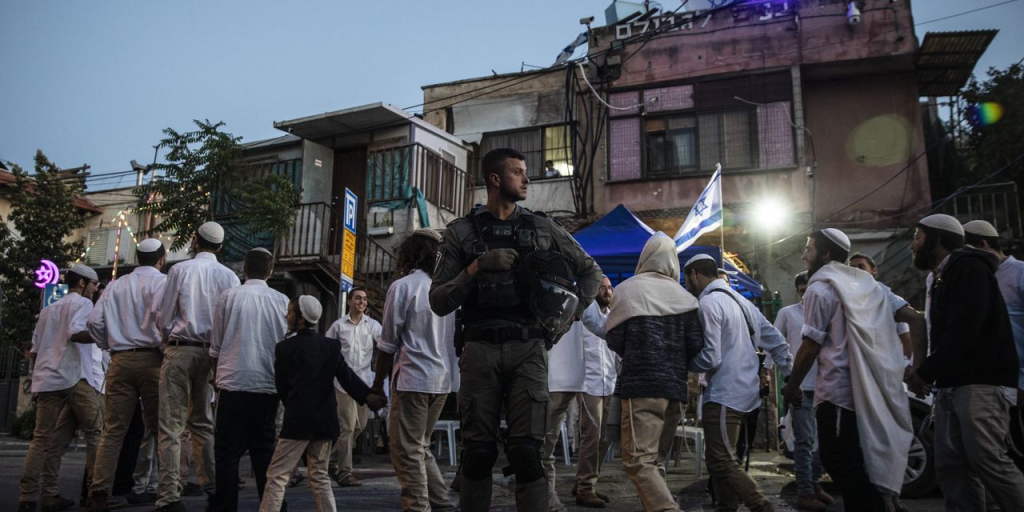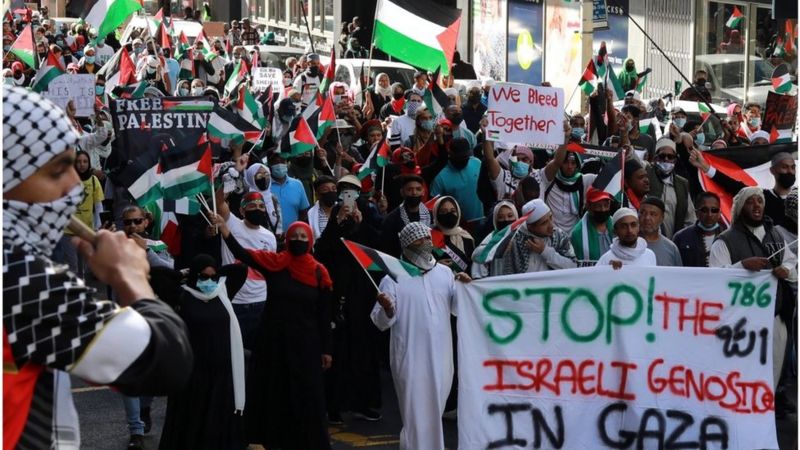Introduction
The year 2023 witnessed a series of events that profoundly impacted religion and society, with the Israel-Hamas conflict emerging as a dominant theme. This conflict not only resulted in a significant loss of lives but also sparked a surge in Islamophobia and antisemitism across the globe. The repercussions of the conflict were felt in the United States, where incidents of hate against Jews and Muslims skyrocketed. In this article, we will explore the far-reaching consequences of the Israel-Hamas conflict on religion and society, examining its effects on public opinion, legislative battles, denominational divisions, LGBTQ+ rights, and the role of influential religious leaders.
The Israel-Hamas Conflict and Its Aftermath
The surprise attack by Hamas on Israeli citizens in 2023 was a pivotal moment that led to a series of events and reactions. As Israel launched its massive counterattack on Gaza, spikes in Islamophobia and antisemitism were reported globally. The Religion News Association (RNA) recognized the significance of this conflict by selecting it as the most important international story of the year. The conflict also had a profound impact on the United States, as hate incidents against Jews and Muslims surged in the aftermath of the attack.

Public Opinion and Generational Divides
A Harvard CAPS-Harris poll revealed stark generational divides in public opinion regarding the Israel-Hamas conflict. Respondents aged 18-24 expressed a higher level of empathy towards the grievances of Palestinians, with 60% agreeing that the Hamas attack could be justified. Additionally, 67% of participants in the same age group believed that Jews, as a class, were oppressors. These figures contrasted sharply with the opinions of respondents older than 65, where only 9% shared the belief that Jews should be treated as oppressors.
Rise in Antisemitic and Islamophobic Incidents
The Israel-Hamas conflict had a direct impact on religious communities in the United States, with both Jews and Muslims becoming targets of hate crimes. The Anti-Defamation League reported a staggering 2,031 antisemitic incidents during the period between October 7th and December 7th. Similarly, the Council on American-Islamic Relations documented 2,171 claims of Islamophobic bias or requests for help during the period between October 7th and December 2nd.
Religious and Social Consequences in America
The Israel-Hamas conflict reverberated throughout American society, fueling debates and controversies on various fronts. Legislative battles emerged surrounding the Supreme Court ruling overturning Roe v. Wade, resulting in numerous states implementing restrictive abortion laws. Senator Tommy Tuberville played a prominent role in blocking military job nominations and promotions as a protest against a White House policy allowing soldiers to travel for abortions. These developments highlighted the ongoing battles over reproductive rights in the United States.
Denominational Divisions within the United Methodist Church
The conflict over biblical authority and ancient doctrines on marriage and sexuality within the United Methodist Church reached a boiling point in 2023. As a result, approximately 25% of United Methodist congregations decided to leave the denomination. Contentions regarding the ordination of noncelibate LGBTQ+ clergy and other LGBTQ+ issues played a significant role in these divisions.

Turmoil over LGBTQ+ Issues
LGBTQ+ issues continued to generate significant levels of turmoil in local and national contexts. Debates surrounding parental rights, school assignments, pronoun policies, and the rights of transgender athletes intensified. These discussions often pitted religious conservatives against LGBTQ+ activists and supporters, highlighting the ongoing struggle for LGBTQ+ rights in various spheres of American society.
Global Ramifications in the Religious Landscape
Beyond the borders of the United States, the Israel-Hamas conflict contributed to significant developments within the global religious landscape. The Anglican Communion experienced fractures as traditional leaders, representing the majority of global Anglican worshippers, expressed no confidence in Archbishop of Canterbury Justin Welby and the church’s power structures. This division arose following a vote within the Church of England to allow blessing rites for same-sex unions.
Evolving Catholic Doctrine and Leadership
The Vatican underwent notable changes in doctrine and leadership during the year. It approved, under specific circumstances, the baptism of transgender Catholics and their right to serve as godparents. Additionally, several German bishops approved the blessing of same-sex relationships. A Vatican document released after the RNA poll granted permission for clergy to bless same-sex relationships, albeit not in rites resembling marriages. These developments reflected an evolving stance within the Catholic Church regarding LGBTQ+ issues.
Indigenous Rights and Inclusion
The Vatican formally repudiated the “Doctrine of Discovery” theories, which originated from 15th-century “papal bulls” that facilitated the colonial-era seizure of Native American lands. This repudiation represented a significant step towards recognizing and rectifying historical injustices. Pope Francis also hosted a “synod on Synodality,” which emphasized the urgent need for increased participation of women in church governance. Catholic progressives expressed their intentions to advocate for further changes in future meetings, such as the ordination of women as deacons and the possibility of married priests.
Recognition of Influential Figures
Despite controversies and health issues, Pope Francis was selected as the religion newsmaker of the year by the Religion News Association. The recognition underscored the Pope’s impact on global religious discourse and his efforts to address pressing issues within the Catholic Church. Meanwhile, Israeli Prime Minister Benjamin Netanyahu secured the second position in the RNA vote, acknowledging his government’s policies and the criticism it faced, particularly in relation to Israel’s judiciary and national security failures.
Conclusion
The Israel-Hamas conflict of 2023 left an indelible mark on religion and society. Its far-reaching consequences encompassed public opinion, legislative battles, denominational divisions, LGBTQ+ rights, and the role of influential religious leaders. The conflict exposed generational divides in attitudes towards Israel and Palestine, led to a surge in hate crimes against Jews and Muslims, and fueled debates on reproductive rights and LGBTQ+ issues. On a global scale, the conflict contributed to fractures within the Anglican Communion and prompted significant shifts in Catholic doctrine and leadership. As the world grapples with the aftermath of this conflict, it is essential to reflect on its impact and work towards fostering understanding, unity, and peace.
